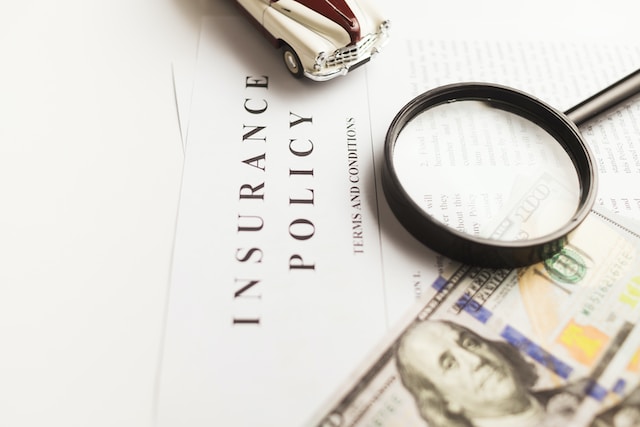Attention Florida drivers! Are you tired of blindly selecting car insurance policies based on price or brand recognition? Finding the right coverage can be overwhelming, but don’t despair. We’ve consulted with industry experts and compiled a list of top tips for comparing car insurance policies in Florida that will help you make an informed decision.
Whether you’re a first-time buyer or looking to switch providers, this guide is packed with valuable information to ensure you get the best possible deal without sacrificing the coverage you need. So buckle up and let’s dive into our expert advice!
What you need to know about car insurance?
Looking for a way to save on car insurance? Check out our list of expert tips for comparing car insurance policies in Florida.
In order to get the best deal on car insurance, you’ll need to know your options. Pay attention to the following factors when shopping for car insurance:
-Your driving record: A recent DUI or other serious violation could increase your rates by as much as 150%. If you’ve had no violations in the past few years, your rates may be lower.
-The type of vehicle you own: Car insurers tend to charge more for vehicles that are deemed high risk, such as sports cars or RVs.
-The coverage you need: Make sure that you have enough liability and collision coverage. Many policies also offer uninsured motorist protection, which can help pay for damages caused by someone who doesn’t have car insurance.
-The price of the policy: Don’t be afraid to shop around. Compare rates from multiple insurers and find one that offers the best deal for your specific needs.
How to compare car insurance policies?
When shopping for car insurance, it’s important to compare policies from different companies to find the best deal. There are a few key factors to consider when comparing policies, including coverage, cost, and deductible.
To help compare policies, you can use these tips:
1. Compare coverage. Car insurance policies vary in terms of what they cover. Some cover accidents and injuries while others offer comprehensive coverage that includes things like theft and damage to your car from natural disasters. It’s important to be aware of what’s covered by each policy so you can make an informed decision about which one is right for you.
2. Look at cost. The cost of a policy will vary depending on the type of insurance you need and the company you choose to buy it from. You can find good deals on car insurance by comparing rates online or through an agent or broker.
3. Consider your deductible. Every policy has a deductible, which is the amount you have to pay out of pocket before the insurance starts covering claims on your behalf. A high deductible may help lower your monthly premiums, but it may also mean that you have to pay more in claims if something goes wrong with your vehicle. It’s important to decide whether the lower premiums are worth having to potentially deal with more financial hardship in the event of an accident or incident.
Factors to consider when choosing a car insurance policy
When comparing car insurance policies in Florida, factors to consider include: the coverages offered by each policy, how much the policy costs, the deductible and maximum benefits, whether any collision or comprehensive coverage is included, and whether optional features such as roadside assistance and rental reimbursement are included. It is also important to research each insurer’s history of paying claims and reviews from other customers to ensure a good fit for your needs.
What is a car insurance policy?
When you’re shopping for car insurance, it’s important to compare Policies side-by-side. Here are a few tips to help make the process easier:
1. Get quotes from multiple providers. You’ll get a better idea of how much each policy costs and what features are included.
2. Check out the coverage options. Make sure the Policy covers everything you need it to, including property damage, personal injury, and vehicular theft.
3. Consider your driving history. A good Policy will cover you regardless of your record.
4. Be sure to read the fine print. Policies can have exclusions that could leave you vulnerable if an incident occurs.
What factors impact car insurance rates?
There are a variety of factors that can impact car insurance rates in Florida. Some of the most important things to consider include: your driving record, the type of car you drive, where you live, and your credit score.
Your Driving Record
Your driving record is one of the most important factors when it comes to car insurance rates. A good driving record will result in lower rates, while a bad driving record will lead to higher rates. Your previous tickets and accidents will also have an impact on your rate. If you have never been ticketed or had an accident, your rate may be lower than someone with a history of driving problems.
The Type of Car You Drive
Car insurance companies use different formulas to calculate rates for different types of cars. The type of car you drive can also impact your rate. If you drive a sports car, for example, your rate may be higher than if you drive a typical family sedan. The more dangerous the vehicle, the higher your rate likely will be.
Where You Live
Another important factor that impacts car insurance rates is where you live. Areas with high crime rates tend to have higher rates, while areas with low crime rates tend to have lower rates. Some insurers also charge more for policies in specific parts of Florida (such as Miami-Dade County), so it is important to compare policies before buying one.
Your Credit Score
A good credit score can help reduce your car insurance premiums
How to compare car insurance policies in Florida?
When you’re looking to compare car insurance policies in Florida, it’s important to keep in mind that there are a variety of factors to consider. Here are a few tips to help you get started:
First, make sure you understand the different types of coverage available through your policy. You may be surprised to learn that some policies don’t include all the coverage you need. For instance, some policies only cover property damage, while others include liability and theft coverage.
Second, be sure to compare rates per month. Not all insurers offer the same rates for each type of policy. For example, one insurer may offer lower rates for liability coverage than for collision coverage.
Third, be sure to compare premiums across different companies. Some insurers offer discounts if you purchase your policy through their website or on-the-phone. So be prepared to ask about these discounts when comparing plans.
Fourth, take into account certain factors when deciding which insurer is the best fit for your needs. For instance, do you live in an area with high accident rates? If so, an insurer with specialty insurance might be a better option for you. Or do you frequently travel? An insurer with global coverage might be a better choice for you than an insurer that doesn’t have international coverage.
Finally, remember that not all policies are alike and it’s important to read the entire policy before making any decisions about it.
What to do if you get a lower car insurance quote than you expected
If you get a lower car insurance quote than you expected, don’t panic. Here are some tips to help you compare policies and get the best deal:
1. Check your premium quotes online. Many insurance companies offer online quote services that will give you a detailed breakdown of each policy’s costs and benefits.
2. Request multiple quotes from different providers. Don’t be afraid to ask for multiple quotes from different companies – each one may have a different price point that is within your budget.
3. Compare coverage options. Make sure to consider all the coverage options available under each policy – including liability, property damage, and collision coverages. This will help you find the right level of protection for your needs.
4. Compare premiums based on your driving history and vehicle type. Some carriers may be more willing to give you a lower premium if you have a good driving record or own a low-risk vehicle type. Speak with an insurance agent to learn more about how these factors can impact your rates.
Understand Your Bodily Injury Coverage
When you are shopping for car insurance, keep in mind that Florida law requires that you carry bodily injury (BI) coverage. This coverage protects you financially if you are injured in a car accident. Here are some tips to help you understand your BI coverage:
Understand the type of BI coverage you have:
You may have three types of BI insurance coverage in Florida: Bodily Injury Liability (BIL), Personal Injury Protection (PIP), and Property Damage Liability (PDL). BIL covers you if someone else is at fault for your injury, PIP covers medical expenses not covered by your health care plan, and PDL covers property damage caused by the accident. Read your policy carefully to find out which type of coverage applies to you.
Know the limits of your BI insurance:
Your policy will have a limit on how much it will pay out in case of an accident. This limit is called the dollar amount per occurrence (AO). The AO is important because it tells you how much money your insurer is willing to spend on your behalf in one accident.
For example, if your AO is $100,000, and someone hits you with a $200,000 car, your insurer would only pay $100,000 out of its own pocket. You would then have to sue the other driver or file a personal injury lawsuit to get any money beyond the $200,000 limit.
Get a Quote for Homeowners Insurance
Florida residents can compare car insurance policies by using a variety of resources, such as the Florida Department of Insurance (DOL) website or an insurance company’s comparison site.
Some tips for comparing car insurance policies in Florida include checking the coverages offered and the premiums charged. It is also important to compare policy terms, including deductible amounts, collision coverage limits, and excesses.
If you have a pet, you should also consider whether your policy offers coverage for pets. You should also make sure that the policy offers 24/7 roadside assistance and comprehensive liability coverage.
When comparing car insurance policies, be sure to ask about discounts that may be available if you are a member of certain clubs or organizations, such as AAA or the American Automobile Association (AAA).
Know What Deductibles Apply to Car Insurance
When shopping for car insurance, be sure to compare policies based on what is covered. This includes understanding the deductibles that apply to each policy.
Some common deductibles for car insurance include:
-The deductible for collision damage insurance ($500 or less per occurrence)
-The deductible for property damage liability insurance (PDI, also known as personal injury protection or PIP) ($250 or less per occurrence)
-The deductible for uninsured motorist coverage (UM) ($25,000 per accident, up to $100,000 in total per year)
You may also want to consider adding UM coverage if you don’t have any other type of auto insurance. UM provides protection against bodily injury and property damage caused by an uninsured driver.
Be sure to read your policy carefully to understand all of its provisions. The amount of coverage you are entitled to depends on the facts of your case and the terms of your policy.
Compare Policies for Driver and Vehicle Coverage
When you’re shopping for car insurance, it’s important to compare policies for driver and vehicle coverage. Here are some tips to help you do just that:
Driver Coverage:
First, consider what type of driver coverage you need. Most policies include personal liability, which covers you if someone is injured or kills as a result of your negligence. Some policies also include property damage liability, which covers damage done to other people or property as a result of collisions you’re involved in.
Some policies also offer uninsured motorist coverage, which provides financial protection if you’re hit by an uninsured driver. This type of coverage is usually mandatory in most states.
Vehicle Coverage:
Next, compare the types of vehicle coverage offered by the different insurers. Many policies include full coverage for cars, trucks, and vans. This means that the insurer will cover any loss or damage caused by the car during a collision, regardless of who is at fault. Other policies may only offer partial vehicle coverage, which means that the insurer will only cover losses or damages caused by the car itself (not passengers or other vehicles). It’s important to choose a policy with the right amount of coverage for your needs. Too much insurance can be expensive, while not having enough can leave you vulnerable in a crash.
Remember to also compare rates between different insurers. Rates can vary significantly from insurer to insurer, so it’s important to find one with rates that are affordable for your budget.
Conclusion
Thank you for reading our expert tips on comparing car insurance policies in Florida. By using the tips in this article, you will be able to find the best policy for your needs without having to waste time or money on something that won’t meet your standards. When it comes to protecting yourself and your family, make sure you are getting the best possible deal by comparison shopping car insurance policies in Florida.





